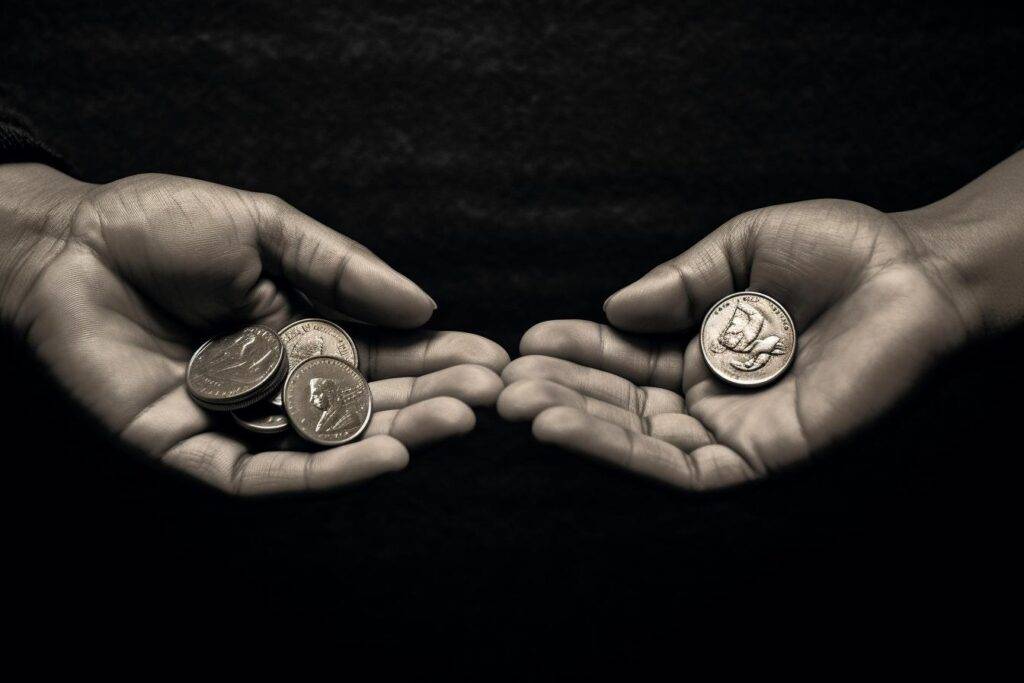The value of money, in a person’s subjective perception, can vary considerably. From the point of view of poverty, the value of money is of enormous importance. For those living in poverty, money means survival and meeting basic needs. Every euro is spent according to priorities to provide daily necessities. The scarcity of money in this context reinforces its value, and individuals can spend more effort and time to obtain even small amounts of money to meet their immediate needs.
From a wealth perspective, the value of money is not limited to survival or the satisfaction of basic needs. For the wealthy, money can provide access to opportunities, comfort and a higher quality of life. While meeting basic needs is still important, money can also be used for investments, luxuries, travel and experiences that enhance their lifestyle. The value of money in this context is linked to the freedom and choice it provides, allowing individuals to focus on their own preferences.
Not all people living in poverty or in wealth have the same view and appreciation of the value of money. Factors such as personal values, cultural background and individual circumstances can influence how money is perceived and valued.
The value of money is not determined solely by its material value. It also has symbolic and emotional significance. Money can reflect security, power, social status and even personal identity. These symbolic aspects of money contribute to how individuals perceive its value and determine its worth in their lives.
Your outlook on life is determined by your values! The following examples make it clear that it is not money that limits everything, but your outlook on it!




